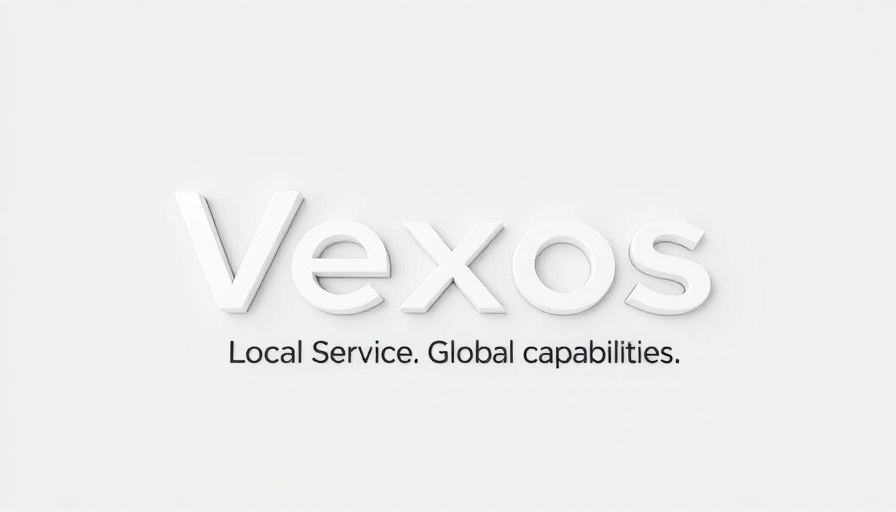
Expanding Horizons: Vexos Strengthens Global Manufacturing Capabilities
In a strategic move set to bolster its global manufacturing footprint, Vexos has inaugurated a state-of-the-art electronics manufacturing facility in Dongguan, China. This expansion, as highlighted by the Senior Vice President, Peter Grimsdale, reflects a commitment to meeting the dynamic demands of their customers around the world while enhancing operational efficiency.
A Modern Marvel in Electronics Manufacturing
Spanning 4,200 square meters, the Dongguan facility is equipped with cutting-edge technology including automated surface mount technology (SMT) lines, precision testing equipment, and advanced quality control systems. This not only demonstrates Vexos' investment in high-quality manufacturing but also positions the company to optimize its production capabilities across various sectors, including industrial, medical, and communication technologies.
The Strategic Importance of Manufacturing in Asia
The relocation and establishment of this facility are particularly significant given the current global supply chain challenges. Countries in Asia, especially China, have been instrumental in the electronics manufacturing sector due to their robust infrastructure and skilled workforce. By enhancing their presence in this crucial market, Vexos is better equipped to manage production costs and reduce lead times, ultimately leading to faster delivery of products to clients globally.
Impacts on the Local Economy and Global Supply Chains
Establishing a new manufacturing facility is not just about business expansion; it also has profound economic implications at both local and global levels. The facility is expected to create job opportunities, thereby contributing to local economic growth. Furthermore, as companies like Vexos streamline their operations within China, the ripple effect can enhance the stability of global supply chains, which have faced ongoing disruptions due to geopolitical tensions and the lingering impacts of the COVID-19 pandemic.
A Forward-Looking Approach: Meeting Customer Needs
With a focus on both high-mix, low-volume and high-volume production, the Dongguan facility exemplifies Vexos' agility in addressing varied customer needs. This flexibility allows Vexos to cater to a diverse clientele in critical industries, from automotive to aerospace, ensuring that they remain a competitive player in the manufacturing landscape.
The Future of Electronics Manufacturing: Trends and Innovations
As globalization continues to shape the landscape of manufacturing, Vexos seems poised to capitalize on emerging trends such as automation, increasing sustainability, and a shift towards localized production models. The investment in this new facility aligns with these trends, enabling the company to innovate continuously while remaining committed to quality and efficiency.
Emphasizing Quality and Reliability
Central to Vexos’ expansion strategy is a commitment to quality and reliability. The company's dedication is evident in its backbone of certifications, including ISO 9001:2015 and ISO 14001:2015, which guarantee adherence to international quality standards. This rigorous quality control framework not only ensures customer satisfaction but also reinforces Vexos’ reputation as a trusted partner in the electronics manufacturing domain.
Why Professionals Should Pay Attention
The expansion of Vexos into Dongguan represents a case study of strategic leadership in an industry that is constantly evolving. For professionals in manufacturing, supply chain management, and electronic services, understanding the implications of such expansions can lead to valuable insights into market trends and operational best practices.
Conclusion: A Bright Future Ahead
The inauguration of the Vexos manufacturing facility in Dongguan marks a significant advancement not only for the company but also for the electronics manufacturing industry as a whole. As Vexos continues to navigate the complexities of global supply chains while emphasizing quality and efficiency, the industry's landscape will likely see innovative changes and improved practices.
Professionals and industry experts are encouraged to keep an eye on Vexos’ next moves, as their ongoing innovations could provide valuable lessons in adapting to the challenges and opportunities that lie ahead.
 Add Row
Add Row  Add
Add 




Write A Comment